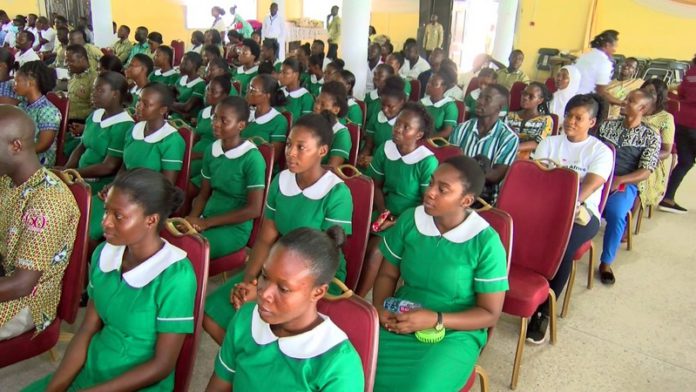The Ministry of Health (MoH) is putting measures in place to curb the mass migration of health workers into other countries, and its implication for Ghana, says the sector Minister, Kwaku Agyeman-Manu.
He said though health worker migration was a global phenomenon, the MoH’s Human Resource Policy Direction aims to strengthen mechanisms for the production, deployment, retention and reintegration of health workforce to meet local and global demands.
Kwaku Agyeman-Manu made these known when he took his turn at the Meet-the-Press series in Accra on Thursday to provide insight into the progress made by the Ministry in providing good health services.
It is recalled that the General Secretary of the Ghana Registered Nurses and Midwives Association (GRNMA), Dr David Tenkorang-Twum, disclosed that a chunk number of nurses sought clearance from the GRNMA Secretariat to leave the country for greener pastures.
To address this, Mr. Agyeman-Manu said the ministry was working within local and international frameworks for Health workforce deployment and reintegration in addition to close collaboration with the Ministry of Employment and Labour Relations to streamline the Migration Policy to address current and future emerging issues.
This, the minister said would ensure financial and brain gain from international deployment of health workforce through mutually beneficial bilateral agreements.
“Government started managing migration in small quantities from Ghana to Barbados. So the new strategy is that, we will engage those who need some of our nurses to see how best we would allow them go and work,” he said.
Speaking on some achievements chalked by the ministry, he said the establishment of a Vaccine Institute in Ghana, represented a significant advancement in regional healthcare, “This initiative stands out as the second institute in West Africa and the sixth across the entire African continent”.
“In August 2023 the Food and Drugs Authority (FDA) was designated as a Regional Centre of Regulatory Excellence in Vaccines Regulatory Oversight in Africa by African Union Development Agency — New Partnership for Africa’s Development,” he said.

According to him, the designation underscores the FDA’s commitment to strengthening the vaccine regulatory capacity of other regulatory authorities in Africa, adding that the achievement aligns with the President’s agenda to make Ghana a vaccine manufacturing hub for Africa.
Mr Manu said the Drugs Laboratory of the FDA’s Centre for Laboratory Services and Research has achieved WHO-Prequalified Quality Control Laboratory status, ‘the first in the ECOWAS region.
With the attainment of this status, test results issued by this laboratory will be recognized globally, creating opportunities for locally manufactured medicines to access the international market while aiding in the effective facilitation of the African Continental Free Trade Area,’.
Touching on Ghana’s roadmap for attaining universal health coverage by 2030, he said government was focused on improving access to quality health services and minimising avoidable maternal, adolescent, child mortality and disabilities.
Mr Manu said the mandate of the Ministry is to improve the health status of all people living in Ghana through effective and efficient policy formulation, resource mobilisation, monitoring and evaluation.
He said the vision of the health sector was to have a healthy population for national development and also to contribute to socio-economic development and the development of a local health industry.
This he said could be achieved by promoting health and vitality, through access to quality health for all people living in Ghana.
On the National Health Insurance Scheme (NHIS), the Minister said the total enrollment stood at 17.2 million annual active members representing 54.5 per cent coverage of the population as against the target of 57 per cent.

